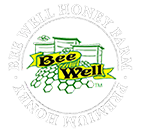
Growing a successful honey business takes more than honey bees and supplies. Growing a successful honey business takes hard work, dedication, and passion. This is how to start a business.
Entrepreneurs are often asked, “How to start a business?”
Owners must hire the right staff, advertise their business, and find the best location to attract hungry crowds. A typical day may have the following to-do list:
- Order supplies
- Create a budget
- Perform hands-on customer service
- Schedule employee shifts
- Commission work for the company website
- Respond to customer concerns on feedback sites like Yelp
- Ensure all food and beverages are being made responsibly and up to company standards
Ordering must anticipate higher volumes of customers without wasting too much product. To a certain extent, an owner may be able to distance themselves from the actual production of the honey, but it helps to have a full understanding of all sides of the business.
What is the target market?
Owners need to attract a crowd who is willing to pay for a premium experience when they want a delicious product. The ideal customer would be someone who lives near the store who will consistently look to your business as their go-to for quality treats. You may also want to attract those who primarily want a coffee shop, but with a bit of a twist.
How does a Honey business make money?
A honey company serves a premium to paying clients in a variety of forms (e.g., in jars, cases, buckets, barrels, etc.) Honey companies may also offer other products, such as bee supplies or bees.
As the owner, you will need to account for location costs (rent, inflation, etc.), employee salaries, and the cost of producing the product. They will then have to determine a price for each individual item that will cover these costs and allow for a profit. It is not recommended that a honey company try for a budget angle due to the cost and effort to make the products.
What is the growth potential for a honey business?
The amount of people purchasing honey has increased dramatically and continues to achieve modest gains yearly. The amount of honey purchased in stores and from neighborhood businesses is predicted to remain strong, however, the overall trends do not necessarily point to growth spikes as high as were seen a few years ago.
The most successful shops are rooted in innovative flavors (e.g., infused, varieties, creamed etc.) and a variety of packaging ( e.g. straws, glass, plastic) Honey companies are most likely to do well in large cities where residents are always looking for a little novelty. As long as the business can change with the times, there should be plenty of room for growth.
Getting Started
What are some skills and experiences that will help you build a successful honey business?
Owners should have a lot of experience in the foodservice industry, including customer service, production, and management. They should have a good understanding of what it takes to give customers a consistent experience no matter when they walk through the door. A formal education such as an MBA or culinary school will certainly help, but the real value lies in having a thorough understanding of how each employee works together to form a cohesive team that can produce and serve superior honey.
What are the costs involved in opening a honey business?

Besides rent and employee salaries, owners will need to register their business and obtain all permits from both the state and local government. A health inspector will need to visit before approving the business, too. The total for these fees vary widely based on where you are and how much profit you expect to make, so the range can be anywhere from a several hundred dollars to up to $8,000 or more. Typically, you can expect to pay less if you’re in a less desirable area.
Owners will need commercial insurance for things like workers’ compensation and liability protection. Average annual commercial insurance costs for food-service small businesses are around $3,000, but each business is judged individually. Initial supplies are the honey extracting equipment (uncappers, extractors, pumps, bottles etc.), cash register and a display case. A basic cash register will only cost a few hundred, but you may want to invest in better technology which will put you closer to $1,000. Owners will need a computer to keep track of finances and schedules.
How to Start a Business?
Once you’re ready to start your honey business, follow these steps to ensure that your business is legally compliant and avoid wasting time and money as your business grows:
- Plan your business. A clear plan is essential for success as an entrepreneur. A few important topics to consider are your initial costs, your target market, and how long it will take you to break even.
- Form a legal entity. Establishing a legal business entity prevents you from being personally liable if your honey business is sued.
- Register for taxes. You will need to register for a variety of state and federal taxes before you can open for business.
- Open a business bank account. A dedicated checking account for your honey business keeps your finances organized and makes your business appear more professional to your customers.
- Set up business accounting. Recording your various expenses and sources of income is critical to understanding the financial performance of your business. Keeping accurate and detailed accounts also greatly simplifies your annual tax filing.
- Obtain necessary permits and licenses. Failure to acquire necessary permits and licenses can result in hefty fines, or even cause your business to be shut down.
- Get business insurance. Insurance is highly recommended for all business owners. If you hire employees, workers compensation insurance may be a legal requirement in your state.
- Define your brand. Your brand is what your company stands for, as well as how your business is perceived by the public. A strong brand will help your business stand out from competitors.
- Establish a web presence. A business website allows customers to learn more about your company and the products or services you offer. You can also use social media to attract new clients or customers.
What are some insider tips for jump-starting a honey business?
Start with a variety of flavors, and over time you can weed out ones that aren’t popular. Offer samples as though your business depends on it — because it does. Your job is to get customers hooked on a certain taste they can’t find anywhere else. You may also want to shell out more money for employees who really know their way around customer service. New businesses will need to make a stellar first impression, and it will be hard to find employees willing to go the extra mile if you’re only paying minimum wage.
Growing Your Business
How to promote & market a honey business
The best way to promote your business is through word of mouth. To get people to the first batch of people coming in though, you’ll likely have to do a Grand Opening, complete with free honey tastings and lots of advanced party planning. The more attention you can attract at the beginning, the more likely it is that excitement will continue long after you’ve cut the ribbon. You’ll want to monitor the Yelp page carefully. The honey business website should be easy to navigate and have excellent content. Advertise to customers about company values too. For example, those willing to pay a few bucks more for a single jar expect their ingredients to be sourced locally, sustainably, and responsibly.
How to keep customers coming back
The best way to retain customers is to deliver the best possible product and service at all times. The more attention put into every touchpoint between the business and the customer (including in-person, over the phone, and online), the more likely it is that customers will continue to spread the word about the honey business. Collect feedback about every aspect of the business from measures like surveys, reviews or conversations, and then adjust the business as need be.
How and when to build a team
Building a team is all about defining the core qualities of employees. Your employees should be able to work under extreme pressure, and they always are looking for ways to make customers happy. Even the most demanding and picky person can be won over by genuinely good customer service. The best time to build your team is right at the beginning, so you can form a core group of people who want to see through what they started.
Legal Considerations
State & Local Business Licensing Requirements
A honey business will need licensing from a local health department, which will vary from town to town. This is because all establishments serving food are required to pass a health inspection.
Most businesses are required to collect sales tax on the goods or services they provide. To learn more about how sales tax will affect your business, check out this guide, Sales Tax for Small Businesses.
FDA Requirements
Furthermore, any business which sells food prepared on site may be randomly inspected by the local health department on a regular basis. These inspections will check for compliance with local health laws, typically related to the prevention of food contamination. Tips for faring well on health inspections can be found here.
Music Licensing
In order to play music in a business setting, permission must be acquired from the composer or license holder. Typically, it is possible to obtain a “blanket” license allowing a businesses to play music owned by a large catalog of artists and recording studios. Such licenses can be obtained from Performance Rights Organizations, such as ASCAP or BMI. Learn more about music licensing requirements.
Certificate of Occupancy
Businesses operating out of a physical location typically require a Certificate of Occupancy (CO). A CO confirms that all building codes, zoning laws, and government regulations have been met.
- If you plan to lease a location:
- It is generally the landlord’s responsibility to obtain a CO.
- Before leasing, confirm that your landlord has or can obtain a valid CO that is applicable to a honey business
- After a major renovation, a new CO often needs to be issued. If your place of business will be renovated before open it is recommended to include language in your lease agreement stating that lease payments will not commence until a valid CO is issued.
- If you plan to purchase or build a location:
- You will be responsible for obtaining a valid CO from a local government authority.
- Review all building codes and zoning requirements for your business’ location to ensure your honey business will be in compliance and able to obtain a CO.
Reduce Personal Liability
Structuring your business as a limited liability company (LLC) ensures your personal assets are protected in the event your business is sued.
Earning Potential
How much can you charge customers?
One general rule of thumb (which differs for each owner depending on where they operate) is to charge 3 to 4 times the cost of the raw ingredients. So if one jar of honey costs $1.00, then the appropriate cost for a customer to pay might be around $3-$4.00. The same can be said for specialty containers as well. A well-maintained shop with fancy amenities can allow you to charge even more.
What are the ongoing expenses for a honey business?
Typically, an owner will have the following ongoing expenses:
- Equipment maintenance
- Employee salaries
- Ordering expenses
- Permit renewals
How much profit can a honey business make?
It’s difficult to estimate as it really does depend on location and price points. In general, you can expect about a third of the budget to go towards raw producing and a third to go to employees. The rest will typically go toward equipment and rent costs.
How can you make your business more profitable?
One easy way is to upsell your customers to larger portion sizes, specialty flavors, etc. However, you can also expand into offering bee supplies or bees, as well as cakes, pastries, and other treats you see the list can grow over time. Get more people hooked by opening up local stands at major events.







